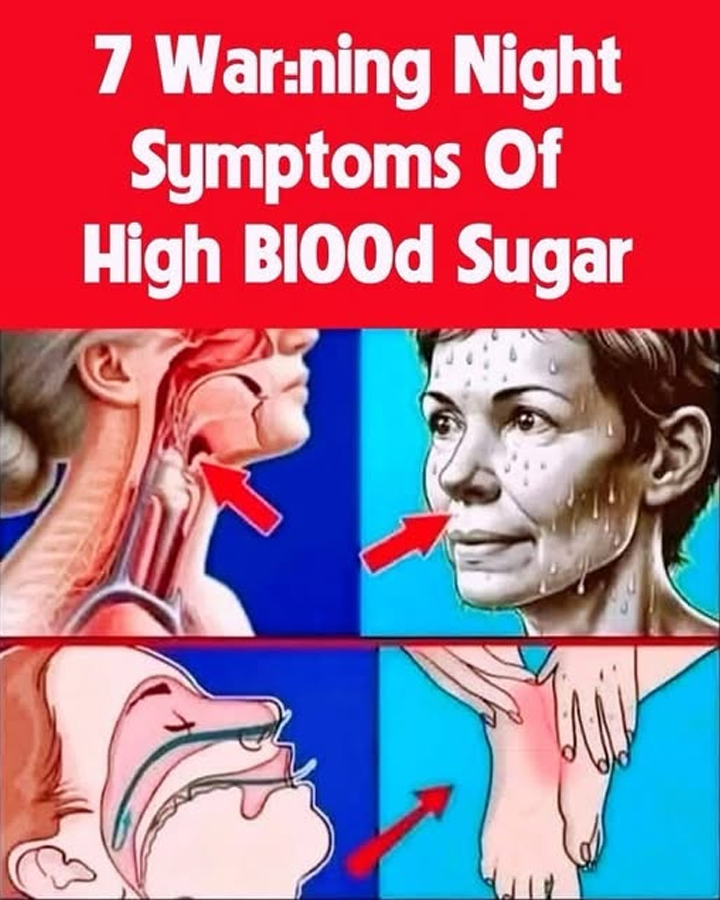Signs that show

1. Frequent Nighttime Urination (Nocturia)
When blood sugar levels are too high, your kidneys try to remove the excess glucose by filtering it out through urine. This causes you to urinate more often, especially at night. Waking up multiple times to use the bathroom can be one of the first signs that your blood sugar is elevated during the night. If this becomes a regular occurrence, it should not be ignored.
2. Excessive Thirst During the Night
As your body loses more fluids through frequent urination, it becomes dehydrated. This dehydration leads to intense thirst, often waking you up in the middle of the night feeling like you need to drink a lot of water. This cycle of urination and thirst can be very disruptive to your sleep and is a classic symptom of high blood sugar levels.
3. Restless Sleep or Insomnia
High blood sugar affects your nervous system and energy levels, making it difficult for you to fall asleep or stay asleep. You may toss and turn, feel anxious, or experience an increased heart rate. Additionally, when your blood sugar drops after being high, your body may respond with adrenaline, which wakes you up suddenly in the middle of the night.
4. Night Sweats
Although night sweats are often associated with low blood sugar (hypoglycemia), they can also occur when your blood sugar levels are unstable. Your body may react to the imbalance by sweating excessively. You might wake up feeling damp or soaked, even if the room is cool. This can happen during fluctuations between high and low sugar levels at night.
5. Tingling, Numbness, or Burning Sensation in Legs and Feet
High blood sugar over time can damage the nerves in your extremities, especially your feet and legs — a condition known as diabetic neuropathy. These symptoms often worsen at night when you’re lying down and blood circulation changes. You may feel a burning, tingling, or pins-and-needles sensation that keeps you awake or disrupts your sleep.
6. Morning Headaches or Fatigue
When your blood sugar is elevated during the night, your body doesn’t get proper rest. As a result, you may wake up with a dull headache or still feel tired even after several hours of sleep. This is because your body had to work hard during the night to deal with the sugar imbalance, and your sleep cycle was disturbed.
7. Vivid Dreams or Nightmares
High or unstable blood sugar can interfere with your REM (Rapid Eye Movement) sleep — the phase when dreaming occurs. This may cause intense, vivid, or unsettling dreams. In some cases, it may even lead to nightmares. People with uncontrolled blood sugar levels often report having unusual or distressing dreams, which leave them feeling uneasy upon waking.
If you or someone you know is experiencing several of these symptoms regularly, especially at night, it’s important to check blood sugar levels and speak with a healthcare professional. Early detection of blood sugar problems can help prevent complications and improve overall sleep quality and health.